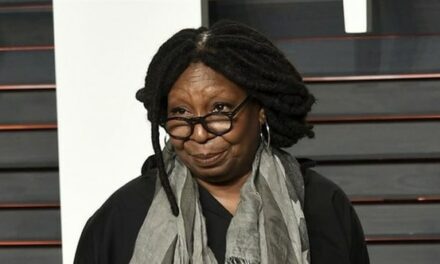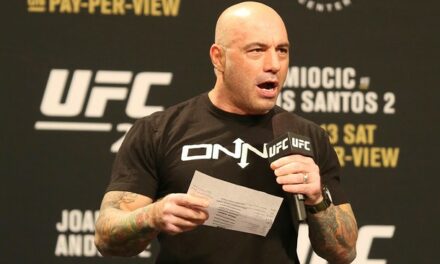We support our Publishers and Content Creators. You can view this story on their website by CLICKING HERE.

Within hours of declaring martial law Tuesday night, South Korean President Yoon Suk Yeol relented but he seems to have fatally wounded his presidency in the process. In a late-night announcement Tuesday, President Yoon suspended the National Assembly and made an emergency martial law decree; see South Korean President Suspends National Assembly and Declares Martial Law.
Advertisement
Yoon labeled the opposition’s actions as “clear anti-state behavior aimed at inciting rebellion.” He further claimed these acts have “paralyzed state affairs and turned the National Assembly into a den of criminals.”
He describing martial law as a necessary measure to eradicate these “shameless pro-North anti-state forces.” He justified the decision as essential to protect the freedoms and safety of the people, ensure the country’s sustainability, and pass on a stable nation to future generations.
The parliament speaker is traveling to parliament and plans to convene a session, according to local broadcaster YTN TV. Yonhap news agency reported though that the entrance to parliament is blocked and lawmakers are unable to enter.
Yoon accused the opposition of turning the nation into a “drug haven” and creating a state of disorder detrimental to public safety and livelihood. He also said the Democratic Party was attempting to overthrow the liberal democratic system, declaring, “The National Assembly has become a monster undermining liberal democracy, and the nation is in a precarious state, teetering on the edge of collapse.”
He assured the public, “We will eliminate the anti-state forces and restore the country to normalcy as quickly as possible.” While acknowledging that martial law might cause some inconvenience, he promised efforts to minimize its impact on the public.
The opposition was not easily cowed. Even as the Army Chief of Staff issued an edict forbidding political gatherings, lawmakers forced their way past a military and police cordon and voted to end martial law.
Advertisement
South Korea’s 6-Hour Martial Law
Police formed a barricade around the parliament & some opposition lawmakers climbed through windows to enter the voting chamber
“I was shocked,” said Kim Song-won, 60 who went to the assembly with his family after hearing martial law was declared pic.twitter.com/RYYAUi70m2— Asmat Mallick (@AsmatMallick) December 4, 2024
Mass protests erupted. The media, which the martial law decree put under the military’s control, had the courage to stand up and be counted.
When President Yoon Suk Yeol of South Korea shocked the nation by declaring martial law, he placed news organizations under the rule of military command and outlawed “fake news.” It was a striking escalation of his long-running feud with media critical of his administration.
But when faced with censorship by the military, the Korean press did not acquiesce. News organizations spanning the political spectrum — even right-leaning publications more aligned with Mr. Yoon’s conservative People Power Party — stood united in criticism of his actions and any efforts to limit a free press.
The opposition party has moved to begin impeachment of Yoon for “treason,” among other things.
South Korea’s opposition parties submit a motion to impeach President Yoon over sudden martial law https://t.co/IhF5ILiIuM pic.twitter.com/C2wemjZJN8
— New York Post (@nypost) December 4, 2024
Korea’s largest labor union declared a general strike until Yoon steps down.
Korean Confederation of Trade Unions, representing millions of workers, calls for an indefinite general strike until Yoon Suk-yeol resigns. “Yoon Suk-yeol’s Anti-Democratic Dictatorial Declaration: The People Will Not Forgive This Anti-Democratic Martial Law”#Korea #MartialLaw pic.twitter.com/QcLyFaLoZs
— an overview of our uncharted new world (@theoverview_) December 4, 2024
Advertisement
All of Yoon’s cabinet secretaries and senior staff have resigned.
🇰🇷South Korean Defense Minister Kim Yong-hyun apologized to citizens and resigned. #korea #SouthKorea https://t.co/txx6JWcUB9 pic.twitter.com/VNw7P4niNt
— DPS (@DPoliticalScope) December 4, 2024
Only one South Korean president in the country’s history has survived the experience of leaving the presidency intact.
🇰🇷 Presidents of South Korea
1. Syngman Rhee (1948–1960) – Overthrown.
2. Yun Bo-seon (1960–1962) – Overthrown.
3. Park Chung-hee (1962–1979) – Assassinated.
4. Choi Kyu-hah (1979–1980) – Removed by a military coup.
5. Chun Doo-hwan (1981–1988) – Sentenced to death after… pic.twitter.com/mk7NExbbHX— NEXTA (@nexta_tv) December 3, 2024
That record doesn’t seem likely to change.

 Conservative
Conservative  Search
Search Trending
Trending Current News
Current News 





